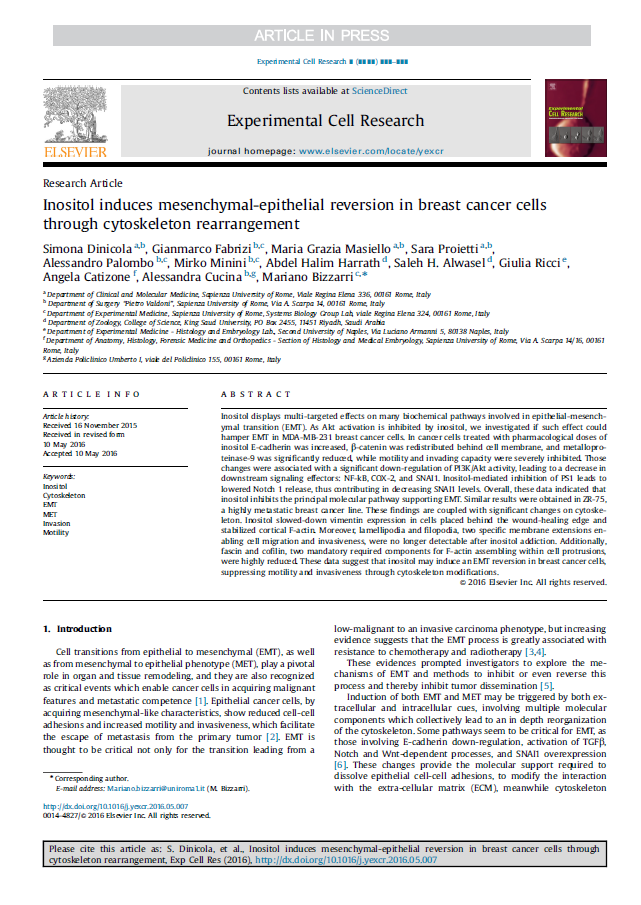Abstract
Inositol displays multi-targeted effects on many biochemical pathways involved in epithelial-mesenchymal transition (EMT). As Akt activation is inhibited by inositol, we investigated if such effect could hamper EMT in MDA-MB-231 breast cancer cells. In cancer cells treated with pharmacological doses of inositol E-cadherin was increased, β-catenin was redistributed behind cell membrane, and metalloproteinase-9 was significantly reduced, while motility and invading capacity were severely inhibited. Those changes were associated with a significant down-regulation of PI3K/Akt activity, leading to a decrease in downstream signaling effectors: NF-kB, COX-2, and SNAI1. Inositol-mediated inhibition of PS1 leads to lowered Notch 1 release, thus contributing in decreasing SNAI1 levels. Overall, these data indicated that inositol inhibits the principal molecular pathway supporting EMT. Similar results were obtained in ZR-75, a highly metastatic breast cancer line. These findings are coupled with significant changes on cytoskeleton. Inositol slowed-down vimentin expression in cells placed behind the wound-healing edge and stabilized cortical F-actin. Moreover, lamellipodia and filopodia, two specific membrane extensions enabling cell migration and invasiveness, were no longer detectable after inositol addiction. Additionally, fascin and cofilin, two mandatory required components for F-actin assembling within cell protrusions, were highly reduced. These data suggest that inositol may induce an EMT reversion in breast cancer cells, suppressing motility and invasiveness through cytoskeleton modifications.

